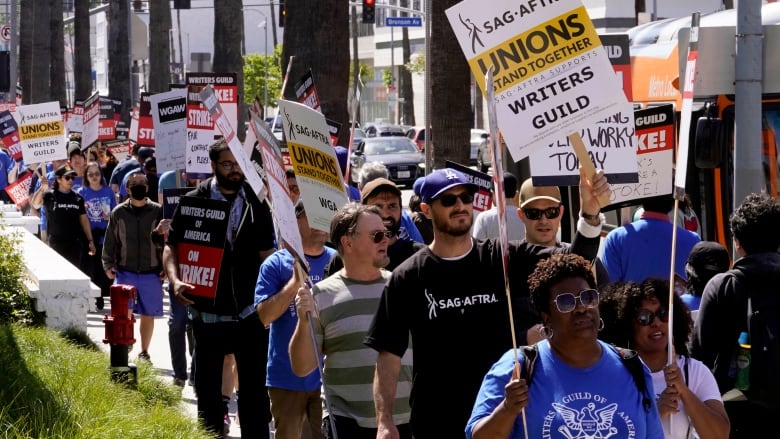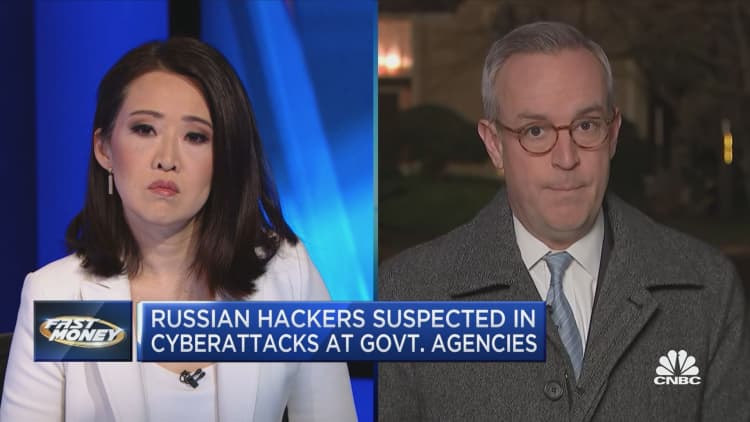Double Trouble In Hollywood: Actors And Writers Strike

Table of Contents
The Writers' Strike: Core Demands and Impacts
The Writers Guild of America (WGA) strike, which began in May 2023, highlights the significant challenges faced by screenwriters in the evolving entertainment landscape. Their core demands center around fair wages, improved working conditions, and addressing the transformative impact of artificial intelligence (AI) on their profession.
Fair Wages and Residuals in the Streaming Era
The shift to streaming has dramatically altered the economics of television and film. Traditional models of compensation, including residuals (payments made to writers each time their work is broadcast or streamed), have been significantly eroded. Shorter seasons and the binge-watching model have reduced the overall number of payments writers receive. This has led to financial insecurity for many writers.
- Increased Minimum Pay: The WGA is demanding significant increases to minimum pay rates for writers, reflecting the increased cost of living and the diminished value of residuals.
- Fair Residuals for Streaming: The union seeks a fairer system of residuals that accurately reflects the value generated by streaming platforms. The current system is widely considered inadequate.
- Improved Working Conditions: The WGA is also advocating for better working conditions, including reasonable hours, adequate staffing, and protection against unfair practices.
The impact on television and film production is already significant. Numerous projects have been delayed or cancelled, leading to production shutdowns and economic uncertainty for many involved in the industry beyond the writers themselves.
AI and the Future of Screenwriting
The WGA's concerns extend to the increasing use of artificial intelligence in writing. The union is particularly worried about the potential for AI to replace human writers, undermining their livelihoods and potentially diminishing the quality of storytelling.
- Regulation of AI in Writing: The WGA demands clear guidelines and regulations regarding the use of AI in the writing process, ensuring that human writers retain control and authorship.
- Protection Against AI Replacement: The union is actively seeking safeguards to prevent the displacement of human writers by AI-generated content.
- Transparency in AI Use: The WGA advocates for greater transparency regarding the use of AI in the industry, enabling writers to understand and address the potential risks and challenges.
The long-term implications of AI on the creative process and the future of screenwriting are profound and require careful consideration. The WGA's demands represent a crucial step in ensuring that human creativity remains central to the art of storytelling.
The Actors' Strike: Joining Forces and Shared Concerns
SAG-AFTRA, representing actors, joined the strike in July 2023, creating an unprecedented united front against the Alliance of Motion Picture and Television Producers (AMPTP). Their demands echo many of the WGA's concerns, further highlighting the systemic issues within the entertainment industry.
Fair Compensation and Residuals
Similar to the WGA, SAG-AFTRA members face significant challenges with compensation in the streaming era. The shift to streaming has diminished residual payments for actors, affecting their long-term financial security.
- Increased Minimum Wages: SAG-AFTRA is demanding significant increases to minimum wages for actors, reflecting the rising cost of living and the diminished value of residuals.
- Improved Health and Pension Plans: The union is also pushing for improvements to health and pension plans, ensuring that actors have adequate retirement security and healthcare coverage.
- Fair Residuals for Streaming: Like the writers, actors are demanding a fairer system of residuals that accurately reflects the value generated by streaming platforms.
The impact on film and television production is substantial, mirroring the effects of the writers' strike. Delays, cancellations, and significant financial losses for studios are becoming increasingly likely.
AI and the Future of Acting
SAG-AFTRA is also acutely aware of the potential impact of AI on the acting profession. The use of AI to create digital replicas of actors raises concerns about job security and the devaluation of human performance.
- Safeguards and Regulations for AI: SAG-AFTRA demands clear safeguards and regulations regarding the use of AI in creating digital likenesses of actors.
- Compensation for AI Use: The union seeks fair compensation for actors when their likenesses are used in AI-generated content.
- Preventing AI Replacement: SAG-AFTRA advocates for measures to prevent AI from replacing human actors in film and television.
The long-term consequences for actors' careers and the industry's reliance on human talent are significant and need careful consideration.
The Power of Solidarity: WGA and SAG-AFTRA Collaboration
The simultaneous strike by the WGA and SAG-AFTRA is unprecedented in Hollywood history. This unified front significantly strengthens their negotiating power.
- Strategic Benefits of a Unified Front: The combined strike creates immense pressure on studios, highlighting the vital role both writers and actors play in the creation of film and television.
- Potential Challenges of Collaboration: Coordinating two large unions with distinct concerns requires careful management and strategic alignment.
- Impact on Negotiations: The combined strike power significantly increases the leverage of the unions in negotiations with the studios, potentially leading to more favorable outcomes.
The Broader Impact of the Double Strike
The double strike extends beyond the immediate concerns of writers and actors, impacting numerous aspects of the entertainment industry and the wider economy.
Economic Consequences
The economic ripple effects are considerable, affecting numerous sectors.
- Impact on Production Companies: Production companies face significant financial losses due to production delays and cancellations.
- Impact on Crew Members: Thousands of crew members, from camera operators to grips, are facing unemployment due to the strike.
- Impact on Local Economies: The strike impacts local economies reliant on the film and television industry, affecting businesses and employment in related sectors.
- Impact on Viewers: The strike could lead to delays in the release of new movies and television shows, impacting viewers’ access to entertainment.
The Long-Term Implications for Hollywood
The long-term implications are far-reaching and potentially transformative.
- Changes in Industry Practices: The strike could lead to fundamental changes in the way the entertainment industry operates, particularly concerning compensation and labor relations.
- Future of Streaming Models: The strike forces a critical reevaluation of streaming models and their impact on creative professionals.
- Future of Negotiations and Labor Relations: The outcome of the strike will significantly influence future negotiations and labor relations within the entertainment industry, potentially setting precedents for years to come.
Conclusion: Navigating the Aftermath of the Actors and Writers Strike
The actors and writers strike represents a pivotal moment in the history of Hollywood, highlighting the critical need for fair compensation, improved working conditions, and the protection of creative professionals in the age of streaming and AI. The key demands for increased minimum wages, fairer residuals, and regulations concerning AI demonstrate the significant challenges faced by writers and actors. The unprecedented unity of the WGA and SAG-AFTRA significantly amplifies their collective bargaining power, potentially leading to long-term changes within the industry. Stay tuned for further updates on this unprecedented actors and writers strike and its lasting impact on Hollywood. For more information, visit the official websites of the WGA and SAG-AFTRA.

Featured Posts
-
 Cleveland Browns Draft Shedeur Sanders In Round 5
Apr 28, 2025
Cleveland Browns Draft Shedeur Sanders In Round 5
Apr 28, 2025 -
 Starbucks Workers Reject Companys Guaranteed Raise Offer
Apr 28, 2025
Starbucks Workers Reject Companys Guaranteed Raise Offer
Apr 28, 2025 -
 E Ink Spectra
Apr 28, 2025
E Ink Spectra
Apr 28, 2025 -
 Market Volatility And Investor Behavior A Case Study Of Recent Trends
Apr 28, 2025
Market Volatility And Investor Behavior A Case Study Of Recent Trends
Apr 28, 2025 -
 Office365 Executive Accounts Targeted In Multi Million Dollar Hack
Apr 28, 2025
Office365 Executive Accounts Targeted In Multi Million Dollar Hack
Apr 28, 2025
Latest Posts
-
 E Ink Spectra
Apr 28, 2025
E Ink Spectra
Apr 28, 2025 -
 75
Apr 28, 2025
75
Apr 28, 2025 -
 Tecno Universal Tone
Apr 28, 2025
Tecno Universal Tone
Apr 28, 2025 -
 Coras Subtle Red Sox Lineup Changes For Doubleheader
Apr 28, 2025
Coras Subtle Red Sox Lineup Changes For Doubleheader
Apr 28, 2025 -
 Could Espns Red Sox Outfield Prediction For 2025 Come True
Apr 28, 2025
Could Espns Red Sox Outfield Prediction For 2025 Come True
Apr 28, 2025
